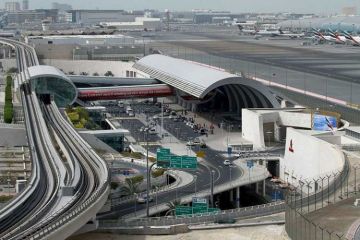A former Cambridge reader in European politics has become Italy's most sought-after pundit on the country's complex political, economic and social problems.
Paul Ginsborg arrived in Italy in 1992 to become professor of contemporary European history at Florence University. Since then, he has become a favourite focus-puller for many Italians, from politicians and political analysts to the general public.
In person or through the media, he analyses and comments the complex and often mysterious trails and tribulations of recent Italian history.
One of Professor Ginsborg's books on contemporary Italy has been adopted as a textbook for Italian schools.
"I receive constant invitations to talk about Italy. Political associations, cultural groups, trade unions, schools, associations of Resistance veterans, all sorts of things," said Professor Ginsborg, seeming surprised by his own popularity.
"Italy is teeming with clubs and associations who want to understand their country better." He has even written a short book with Massimo D'Alema, secretary of the Democratic party of the left, the former Communist party, and one of Italy's most powerful and influential politicians.
Professor Ginsborg first made his mark in Italy with A History of Contemporary Italy, published in Italy by Einaudi in 1989 and by Penguin in 1990. "I originally conceived this for a general readership in Britain," explained Professor Ginsborg. "But it sold well in Italy, was well reviewed, circulated and debated. A simplified and updated version has been adopted as a textbook by many Italian schools."
Italians tend to be baffled by their own recent history and are eager to hear what foreign analysts have to say.
Despite horror stories about Italian higher education, Professor Ginsborg has been pleasantly surprised by teaching in an Italian university.
"Compared to British universities, there is a different balance between administration, research and teaching. We have a much lighter administrative load and therefore more time for our own research. There is also a freedom from cumbersome bureaucratic control by the state over how we are working.
"Of course this system is open to abuse. But if one is reasonably conscientious, one can teach effectively and have time for research. The most serious criticism I would make is that Italian academics are not very efficient at management."
Register to continue
Why register?
- Registration is free and only takes a moment
- Once registered, you can read 3 articles a month
- Sign up for our newsletter
Subscribe
Or subscribe for unlimited access to:
- Unlimited access to news, views, insights & reviews
- Digital editions
- Digital access to THE’s university and college rankings analysis
Already registered or a current subscriber?








